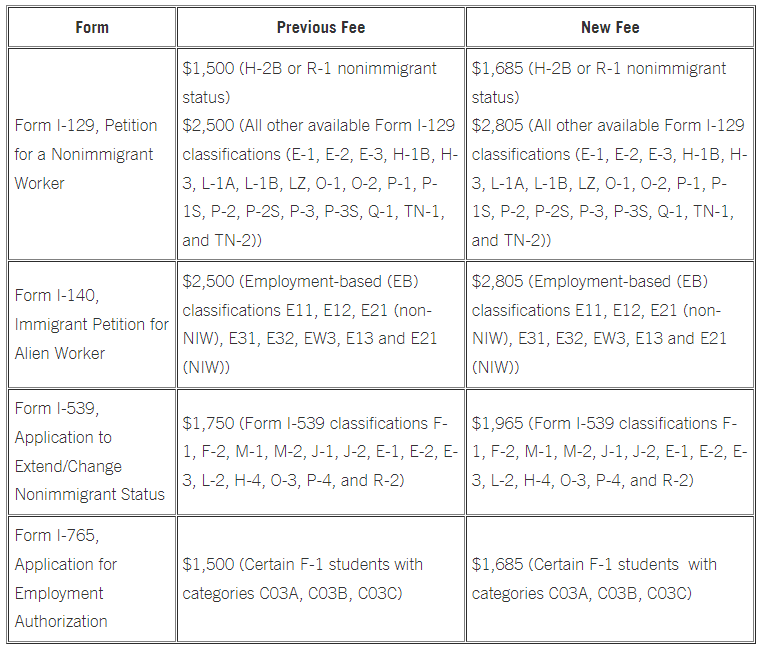The guaranteed premium processing time for most non-immigrant and immigrant employment-based petitions is 15 calendar days (45 days for certain Form I-140 Immigrant Petitions) and 30 days for Form I-539 and I-765 applications filed by individuals.
The following table, provided by the USCIS, shows the fees currently in effect as well as the fees that will apply starting February 26, 2024:
Read USCIS' announcement here.
If USCIS receives a Form I-907 postmarked on or after Feb. 26, 2024 with the incorrect filing fee, we will reject the Form I-907 and return the filing fee. For filings sent by commercial courier (such as UPS, FedEx, and DHL), the postmark date is the date reflected on the courier receipt.
ALERT: Starting June 26, 2024, USCIS will accept Form I-907 requests, filed either via paper form or online, for applicants seeking a change of status to F-1, F-2, M-1, M-2, J-1, or J-2 status, when filed together with Form I-539.
As of June 13, 2023, USCIS has been accepting Form I-907 requests, filed via paper form or online, for applicants seeking a change of status to F-1, F-2, M-1, M-2, J-1, or J-2 status, who have a pending Form I-539, Application to Extend/Change Nonimmigrant Status.

















 RSS Feed
RSS Feed